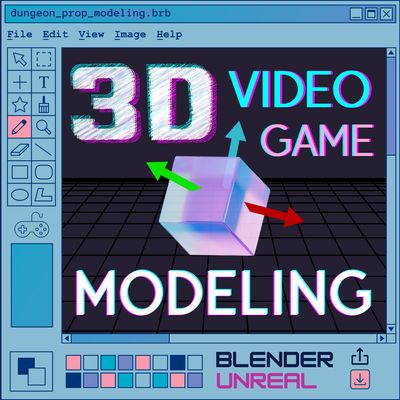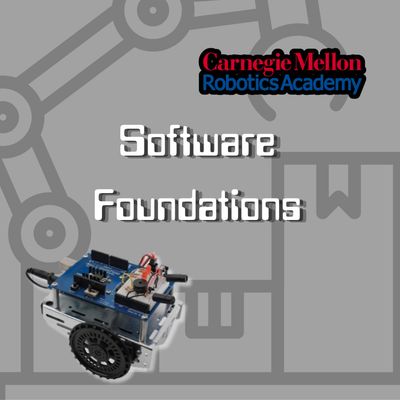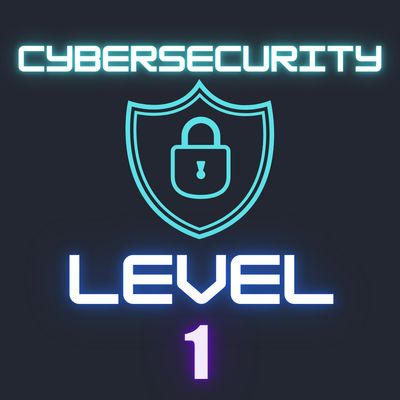Carnegie Mellon Robotics Academy: Electrical Foundations (Adults)
Master the Basics of Electricity and Circuitry One Class at a Time!
This course provides a hands-on introduction to the foundational concepts of electricity and circuitry. Using Arduino as the core microcontroller, students will learn how to work with circuits, control signals, and integrate sensors. By the end of the program, participants will have constructed an e-panel —a system comprising all the components of a typical robotic system —providing practical experience applicable to robotics and engineering projects.
The course is project-based, emphasizing hands-on learning. For students who watch the videos at home, come prepared to class, and complete the projects on time, the course can be completed in as little as 3–4 months with a commitment of 1.5 hours per week in class. To earn a certificate, students must complete the projects according to the given specifications, which will be reviewed and approved by instructors before submission. Additionally, students must pass the final exam with a score of 70% or better to complete the course successfully. The cost for the certification is an additional $200.
Developed by Carnegie Mellon Robotics Academy
This course was developed by the Carnegie Mellon Robotics Academy (CMRA), a global leader in robotics education. CMRA researches how educators can use robots to teach Computer Science, Science, Technology, Engineering, and Mathematics (CS-STEM). Their mission is to create CS-STEM opportunities for all learners by designing research-based, classroom-tested solutions to foreground essential STEM concepts.
Course Schedule
Exploring Circuits
- Identify electrical components and their functions.
- Learn basic skills: crimping, wire construction, and using multimeters.
- Concepts covered: voltage, conductors, insulators, loads.
- Mini-Challenges: Simplest Circuit, An Unwanted Shortcut.
Wiring and Connectors
- Understand wire types, coloring, and connectors.
- Use electrical tape and test wire connections.
- Build a lightbox using simple switches and circuits.
- Mini-Project: Test Your Wire.
Voltage in Parallel and Series Circuits
- Explore the difference between parallel and series circuits.
- Learn about voltage drops and shared voltage nodes.
- Create an LED sign with a wiring panel.
- Mini-Challenges: Voltage Investigation, Parallel Circuits.
Voltage and Current for Motors
- Understand voltage and current requirements for motors.
- Explore motor direction, fuses, and rechargeable batteries.
- Build and test a fan circuit.
- Mini-Project: Current Investigation, Larger Battery.
Controlling Signals with Arduino
- Learn how to send and control signals using Arduino.
- Work with relays and motor control boards.
- Program an Arduino to control high and low signals.
- Unit Project: Build a 2-wheeled cart.
Sensors and Microcontrollers
- Integrate digital and analog sensors with Arduino.
- Learn about limit switches, ultrasonic sensors, and their applications.
- Control motors using real-time sensor input.
- Mini-Challenges: Detecting Bumps, Detecting Objects from a Distance.
Building the E-Panel
- Organize and label wires for easy troubleshooting.
- Create wiring harnesses and use conduits for organization.
- Plan and execute the layout of an e-panel system.
- Mini-Challenge: Labeling Wires.
Introduction to Soldering
- Understand soldering tools, safety procedures, and techniques.
- Practice soldering connections and check continuity with a multimeter.
- Build a small soldered circuit and fix soldering mistakes.
- Mini-Challenges: Solder Both Ends, Solder a Simple Circuit.
Final E-Panel Project
- Integrate all learned components into a complete e-panel.
- Ensure proper spacing, labeling, and wiring for easy troubleshooting.
- Test the e-panel’s functionality with real-world scenarios.
Final Presentations and Wrap-Up
- Present your e-panel and demonstrate its functionality.
- Reflect on lessons learned and discuss real-world applications of electrical systems.
- Celebrate your achievements with a certificate of completion (if applicable).
Course Highlights
- Hands-On Learning: Work directly with Arduino and real electrical components.
- Step-by-Step Instruction: Build your skills progressively, mastering each topic before moving on.
- Real-World Applications: Learn how circuits and signals are used in robotics and other industries.
- Problem-Solving Skills: Develop critical thinking and troubleshooting abilities through hands-on projects.
Ideal for
- Adults interested in robotics, programming, and engineering
- No prior experience required—just curiosity and a willingness to build
Format
- Schedule: once or twice per week. You choose the day and time.
- Duration: two to six months, depending on prior experience
- Materials Provided: ShieldBot kits, Arduino boards, cameras, and more






